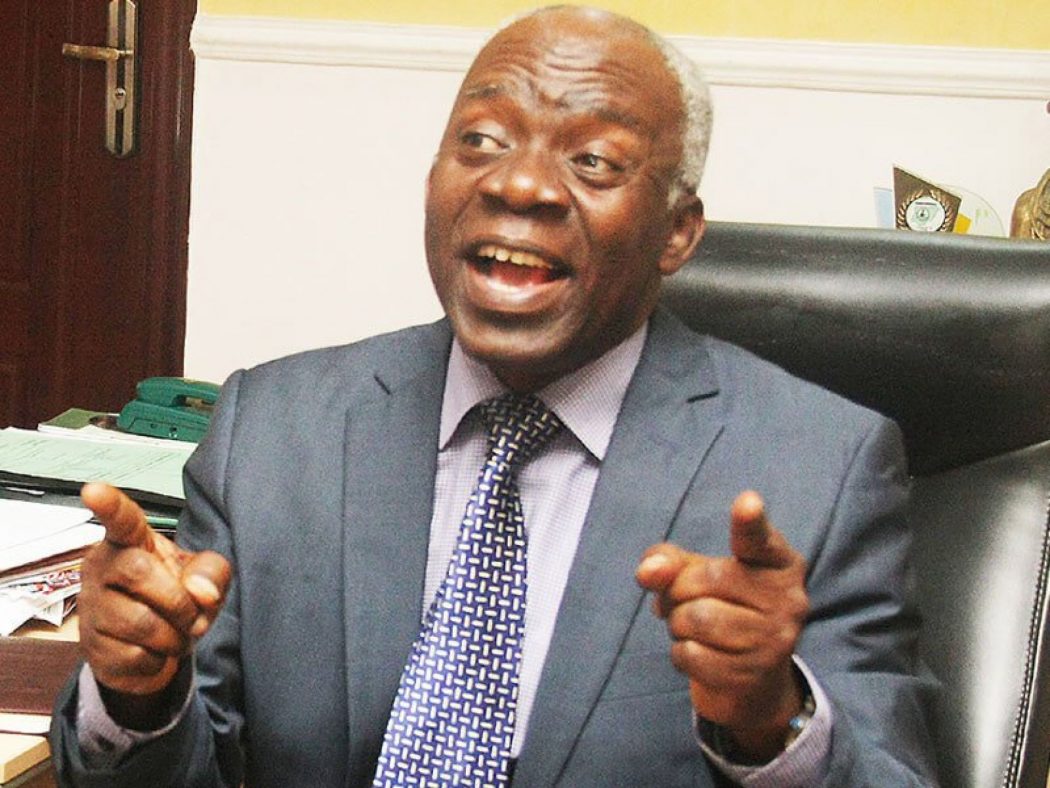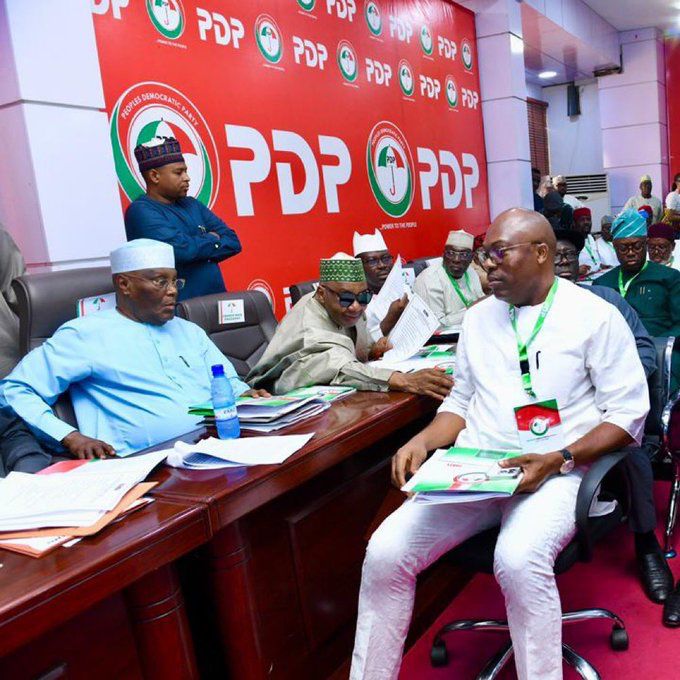A human rights lawyer, Femi Falana, SAN, has countered the Attorney-General of the Federation and Minister of Justice, Abubakar Malami, SAN over his comment that banning of open grazing is unconstitutional.
In a statement made available to TheNigeriaLawyer, Falana said right to movement under section 41 and 43 of the constitution does not cover free movement of animals to destroy farmlands.
He said, “The Attorney-General of the Federation and Minister of Justice, Mr. Abubakar Malami SAN was reported yesterday to have condemned the ban on open grazing by the Southern Governors Forum. The AGF stated that the ban on open grazing is unconstitutional as it affects the right of herders to move freely in the country.
With respect, the ban on open grazing has not affected the rights of herders to move freely and acquire land in any state for the establishment of ranches in line with the provisions of sections 41 and 43 of the Constitution. Since the Constitution does not cover the right of animals to move freely and destroy farmlands it is grossly misleading to give the impression that the ban on open grazing has abrogated the right of herders to carry out their business.”
In addition, Falana explained that the Minister of Agriculture and relevant state commissioners are empowered by several laws to regulate the movement of animals
“With respect to the movement of animals in the country the Animal Diseases (Control) Act and similar laws applicable in the states have empowered the Minister of Agriculture and relevant State Commissioners to make appropriate regulations to regulate the movement of animals and prevent them from transmitting diseases.” Falana said
The Learned silk also faulted the analogy that banning of open grazing is likened to stopping of sale of spare parts. According to Falana, sellers of spare parts do not kill fellow citizens neither do they destroy properties
He said, “The AGF equally said that banning open grazing is like banning the sale of spare parts. The comparison is not applicable as the sellers of motor parts who operate in shops and markets in all states have not been accused of engaging in the killing of fellow citizens and destruction of their properties. Besides, those who sell spare parts outside their states of origin either acquire properties or pay rent for the their lawful business.”
Falana further clarified that the 36 Governors of the Federation have at various times banned open grazing. He said the first decision banning open grazing was made by the governors during National Economic Council meeting on April 27, 2018 while the second was in 2019 by the Northern Governors Forum
The statement reads in part, “However, in order to halt the incessant violent clashes between farmers and herders which had led to mindless killings and wanton destruction of properties in many parts of the country the federal government and the 36 state governments have, at various fora, banned open grazing in all states of the Federation and the Federal Capital Territory.
In view of the desperate moves of some members of the geo- political class to divide the Nigerian people along regional basis it is pertinent to draw the attention of the members of the public to the following reports:
“1. On April 27, 2018, the members of the National Economic Council resolved to ban open grazing and adopt the Livestock Transformation Plan of the Federal Government. The National Economic Council is constituted by the Vice President, the 36 State Governors, the Minister of Finance and the Central Bank Governor. (https://m.guardian.ng/news/ne c-bans-open-grazing-as-herdsme n-attacks-persist/)
2. On February 9, 2021, the Northern Governors Forum banned open grazing in all states in Northern Nigeria. https://www.vanguardngr.com/20 21/02/insecurity-northern-gove rnors-seek-end-to-open-grazing/
3. On February 11, 2021 the Nigeria Governors Forum banned open grazing in all the 36 states of the Federation. https://thenationonlineng.net/ 36-governors-agree-to-end-noma dic-cattle-rearing/
4. On May 14, 2021 the Southern Governors Forum banned open grazing in the 17 states in Southern Nigeria. https://m.guardian.ng/news/sou thern-governors-ban-open-grazi ng-call-for-restructuring/
5. On May 18, the PDP Governors Forum endorsed the decision to ban open grazing in the entire country. http://thesouthernexaminer.com /pdp-governors-endorse-ban-on- open-grazing-p5388-214.htm
“Based on the ban on open grazing, not fewer than 24 states governments have submitted applications to the Federal Ministry of Agriculture for grant to facilitate the establishment of ranches in line with the Livestock Transformation Plan of the Federal Government.
Meanwhile, Governor Umar Ganduje of Kano State has invited herders who are adversely affected by the ban on open grazing to settle down in the Ruga Settlement established by the State Government. While commission the first batch of 25 housing units out of the 200 earmarked for RUGA settlement the Governor said that his government engaged in the project for two fundamental reasons: “first and foremost is to avoid clashes between farmers and herders, secondly to avoid movement of herders which is the source of conflict and to avoid cattle rustling.” (https://www.thecable.ng/gandu je-invites-more-herders-to-kan o-as-he-inaugurates-ruga-settl ement/amp).”
Falana urged Malami to, being Attorney-General of the Federation, respect sensibilities of persons when issuing statements and should stand up for social justice
“Mr. Malami should be reminded that he is the Attorney-General of the Federation and Minister of Justice of the Federal Republic of Nigeria. So, in making statements he should always take due regards of the sensibilities of every part of the country and respect all legitimate interests of the entire people of the country.
The Nigerian Lawyer

 News6 years ago
News6 years ago
 Featured6 years ago
Featured6 years ago
 Boss Picks6 years ago
Boss Picks6 years ago
 Headline6 years ago
Headline6 years ago
 Headline6 years ago
Headline6 years ago
 Headline5 years ago
Headline5 years ago
 Headline6 years ago
Headline6 years ago
 Headline6 years ago
Headline6 years ago













